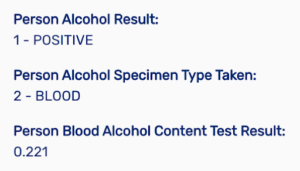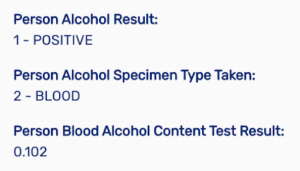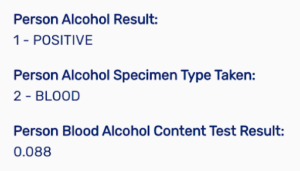Drunk driving can play a role in any auto collision, from head-on truck accidents to rear-end car crashes. However, some of the most common in San Antonio are:
Pedestrian Accidents
Drunk driving is a major cause of pedestrian accidents. Pedestrians are especially vulnerable when walking down the street, and the impact of a high-speed car operated by a drunk driver can have severe, even deadly, consequences.
Drunk drivers might ignore traffic lights at pedestrian crossings, veer off marked roadways, and hit pedestrians on sidewalks or street corners.
Head-On Collisions
Head-on collisions involving drunk drivers typically result in catastrophic injuries and significant property damage. Alcohol impairs vision, motor abilities, reaction times, rational thinking, and consciousness, leading drivers to miss traffic signs and potentially drive into oncoming traffic. This type of car accident is extremely dangerous, and the faster either vehicle is moving, the worse the outcome.
Rear-End Collisions
Rear-end car accidents can occur due to tailgating or sitting in a larger vehicle’s blind spot. Alcohol affects vision, making it harder for drunk drivers to judge distance and speed. Rear-end accidents commonly happen when drunk drivers follow too closely because they cannot accurately perceive the vehicle ahead. If that vehicle brakes for a stop light or at an intersection, the drunk driver may hit them as their reaction time is significantly slower.
Hit-and-Run
A drunk driver who leaves an accident scene can be charged with two crimes: DWI and hit-and-run. Claiming compensation after a hit-and-run accident in Texas can be more challenging, especially if you did not get a good look at the drunk driver before they fled. Fortunately, there are several things a drunk driving accident attorney can do to identify the person responsible and build a case against them, including speaking with witnesses who may have seen what type of vehicle they were driving and the direction they headed and viewing traffic cam footage of the local area.
Passenger Collisions
Passengers riding with a drunk driver — including ride-share drivers — and injured in a collision can potentially file a civil claim against the driver. Sometimes, passengers may be partially responsible for their injuries, such as if they knew the driver was intoxicated and still chose to ride in the car or handed them the keys.
Wrongful Death
Losing a family member is devastating, especially when it’s preventable. The compensation you can recover for your loved one’s wrongful death depends on several factors, including their age and the extent of negligence or recklessness by the responsible party. Wrongful death compensation can include mental anguish endured by the family, funeral costs, outstanding medical expenses, and lost income potential. It’s also possible to recover exemplary damages — also known as punitive damages — when your loved one’s death is due to another party’s willful act, omission, or gross negligence.





